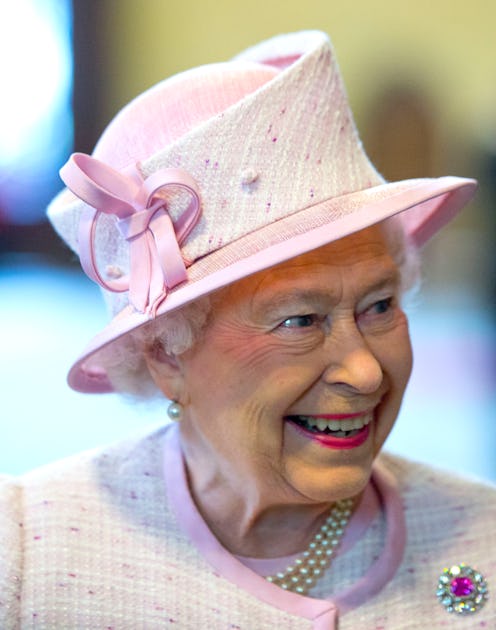News
Posthumous Pardon For Gay Codebreaker
Queen Elizabeth II pardoned British mathematician Alan Turing for his 1952 conviction for homosexuality Thursday, in a rare gesture. Turing is widely considered a father of computer science for his development of the Turing test, a way of evaluating artificial intelligence, and for cracking the Enigma Code used by Germans in World War II. But, unfortunately for him, Turing was also a gay man, and gross indecency was still a crime in the 1950s (the same one that Oscar Wilde had been convicted for in the preceding century). And, before parts of the United Kingdom had marriage equality — and before Prince Harry stood up against anti-gay harassment and partied at gay bars — the country had really cruel punishments for being gay.
Like, really: Before he died almost 60 years ago, Turing was chemically castrated in lieu of a prison sentence. He was injected with female hormones, and apparently also lost his security clearance (why, though, it's not clear — you can't be blackmailed about your sexuality if it's already out there). The harsh treatment drove him to commit suicide in 1954 at the age of 41, allegedly by eating an apply laced with cyanide.
An online petition to pardon Turing gathered more than 37,000 signatures. "Alan Turing was driven to a terrible despair and early death by the nation he'd done so much to save," the petition reads. "This remains a shame on the UK government and UK history." Former prime minister Gordon Brown called his treatment "horrifying" and "utterly unfair," and in 2009 issued a formal apology.
"Dr. Turing deserves to be remembered and recognized for his fantastic contribution to the war effort and his legacy to science," said Chris Grayling, the British justice secretary, in a statement Tuesday. "A pardon from the Queen is a fitting tribute to an exceptional man."
Of course, this is a weird situation for the Queen, given that she was... already Queen when Turing killed himself. Her pardon would've helped a lot more 60 years ago. And, of course, there were also dissenters to the decree. Writing for the Guardian, Ally Fogg argued that Turing's pardon puts the emphasis on Turing's personal achievements, and not the inherent wrongness of the law:
Turing was certainly an exceptional man but the tribute could not be less fitting. It says that the British state is prepared to forgive historical homosexual acts providing they were performed by a national hero, academic giant or world-changing innovator. This is the polar opposite of the correct message. Turing should be forgiven not because he was a modern legend, but because he did absolutely nothing wrong. The only wrong was the venality of the law. It was wrong when it was used against Oscar Wilde, it was wrong when it was used against Turing and it was wrong when it was used against an estimated 75,000 other men, whether they were famous playwrights and scientists or squaddies, plumbers or office clerks. Each of those men was just as unfairly persecuted, and many suffered similarly awful fates. To single out Turing is to say these men are less deserving of justice because they were somehow less exceptional. That cannot be right.
Well, we can't argue with that.
